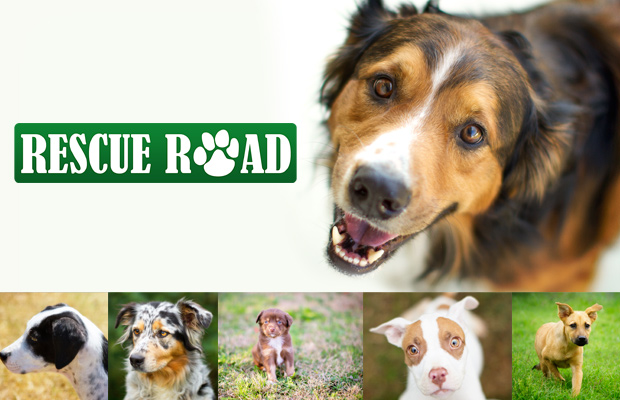Rescue Road

“Home is where someone runs to greet you.”
We’ve all heard these popular animal lover sayings, and it’s clear Arkansans live by them. The most recent rankings from the American Veterinarian Medical Association place the Natural State seventh in the country in pet ownership and first in dog ownership. In fact, nearly 48 percent of all Arkansas households own a dog.
While thousands of animals are euthanized in Arkansas every year, thousands of others are up for adoption just waiting for a forever home. Melanie Stapleton with Rescue Road of Saline County says, “Through our organization, more than 80 foster families in Arkansas opened their hearts and homes in 2013. Another 765 traveled to the north to be adopted.”
Rescue Road’s mission is to redirect happy, healthy, adoptable dogs in high-kill shelters into other networks to find families. The organization teams up with local shelters to foster dogs for several weeks. The animals are then sent to the northeast where they are adopted by loving families.
Stapleton says, “Our shelters are so full. Many Arkansans already have pets. There are not enough homes to keep up with the supply of dogs that we have. But in Massachusetts they don’t have this problem, so it is the perfect marriage.” She also says if you are unable to foster a pet, your donations are greatly needed. The organization is in constant need of food, crates, metal dog bowls, towels, and monetary gifts to keep the animals safe and healthy.
She says, “Being able to get these shelter’s numbers down and then seeing those happy-tailed pictures from up north with their new families is just great.” In addition, Stapleton says this is a perfect time of year to remind Arkansans of the dangers of cold air. “We are always in need of fleece blankets,” she explains.
Animal experts say precautionary measures should be taken when the temperature drops below 40 degrees. The American Kennel Club released general concerns all pet owners should keep in mind.
- Don’t leave your dog outside in the cold for long periods of time. Wind chill makes days colder than actual temperature readings. Be attentive to your dog’s body temperature, and limit its time outdoors.
- Adequate shelter is a necessity. Keep your dog warm, dry and away from drafts. Tiles and uncarpeted areas may become extremely cold, so make sure to place blankets and pads on floors in these areas.
- Be extra careful when walking or playing with your dog near frozen lakes, rivers or ponds. Your dog could slip or jump in and get seriously injured.
- Groom your dog regularly. Your dog needs a well-groomed coat to keep properly insulated. Short- or coarse-haired dogs may get extra cold, so consider a sweater or coat. Long-haired dogs should have excess hair around the toes and foot pads trimmed to ease snow removal and cleaning. If you do the trimming, take care not to cut the pads or other delicate area of the foot.
- Feed your dog additional calories if it spends a lot of time outdoors or is a working animal. It takes more energy in the winter to keep body temperature regulated, so additional calories are necessary.
- Towel or blow-dry your dog if it gets wet from rain or snow. It is important to dry and clean its paws, too. This helps avoid tiny cuts and cracked pads. A little petroleum jelly may soften the pads and prevent further cracking.
- Don’t leave your dog alone in a car without proper precautions. If the car engine is left on, the carbon monoxide will endanger your dog’s life. If the engine is off, the temperature in the car will get too cold.
- Antifreeze, which often collects on driveways and roadways, is highly poisonous. Although it smells and tastes good to your
- dog, it can be lethal.
- Rock salt, used to melt ice on sidewalks, may irritate footpads.
- Provide plenty of fresh water. Your dog is just as likely to get dehydrated in the winter as in the summer. Snow is not a satisfactory substitute for water.
- Frostbite is your dog’s winter hazard. To prevent frostbite on its ears, tail and feet, don’t leave your dog outdoors for too long.
- Be very careful of supplemental heat sources. Make sure all fireplaces have screens, and keep portable heaters out of reach.
- By taking these steps, local veterinarians say you can help prevent your pet from developing frostbite, hypothermia, or even death. As for Stapleton, she urges anyone who sees a dog or cat outdoors with no shelter during extreme winter weather to call their local animal control.
If you are interested in fostering a dog from Rescue Road, check out their Facebook page: facebook.com/rescueroad. You can also e-mail melanies@rescueroad.org.










0 comments